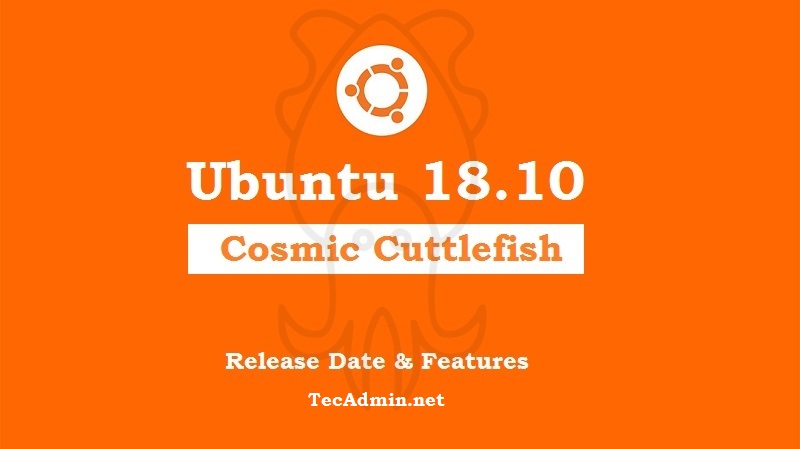A new milestone has been completed after the release of Ubuntu 18.04. Now the development team starting work for upcoming released by keeping in mind of the next LTS release 20.04. As of writing Mark Shuttleworth (Founder of Ubuntu) has revealed the codename for upcoming release Ubuntu 18.10 but not introduced the release cycle and codename for Ubuntu 18.10. The Ubuntu 18.10 is the next standard (non-LTS) release. As per the Ubuntu life cycle standard, this release will be supported for 9 months after final release.
Ubuntu 18.10 Codename
The Mark Shuttleworth has introduced the codename on his blog post for its upcoming release of Ubuntu. The Ubuntu 18.10 codename is Cosmic Cuttlefish. You can also see the updated name on daily build url for this upcoming release.
Cosmic – This is an adjective that relates to the cosmos (world). Cuttlefish – Also known as cuttles is a marine animal. Despite their name, cuttlefish are not a fish but it is molluscs.
Ubuntu 18.10 Release Date
The Ubuntu strictly follows its release cycle and its release number is also a combination of year and month of release. The Ubuntu 18.10 release date is set to October 18, 2018.
Download Ubuntu 18.10
You can download Ubuntu 18.10 daily build from its official download website cdimage.ubuntu.com. Download Ubuntu 18.10 Desktop Download Ubuntu 18.10 Server
Ubuntu 18.10 Features
1. A New theme and icon set
A new theme and icon set was expected with 18.04, but due to many issues and bugs, it was not included. So most likely a new GTK theme and icon set can be seen with Ubuntu 18.10 to give a new look for your desktop.
2. GNOME 3.30
You may be seen the upcoming GNOME 3.30 with Ubuntu 18.10, which is releasing on 6th Sep 2018.
3. Linux Kernel 5.0
There are fewer changes but the Ubuntu 18.10 could be shipped with Linux Kernel 5.0. As of now the Linux Kernel 4.17-rc4 is released and crossed 6 million Git objects.
4. Zstandard (zstd) compression
Zstandard is a developed by Facebook provides higher decompression speeds as compared to other compression tools like Gzip, etc. So there are high chances to use Zstd for Ubuntu 18.10 to provide faster installation and performance.
